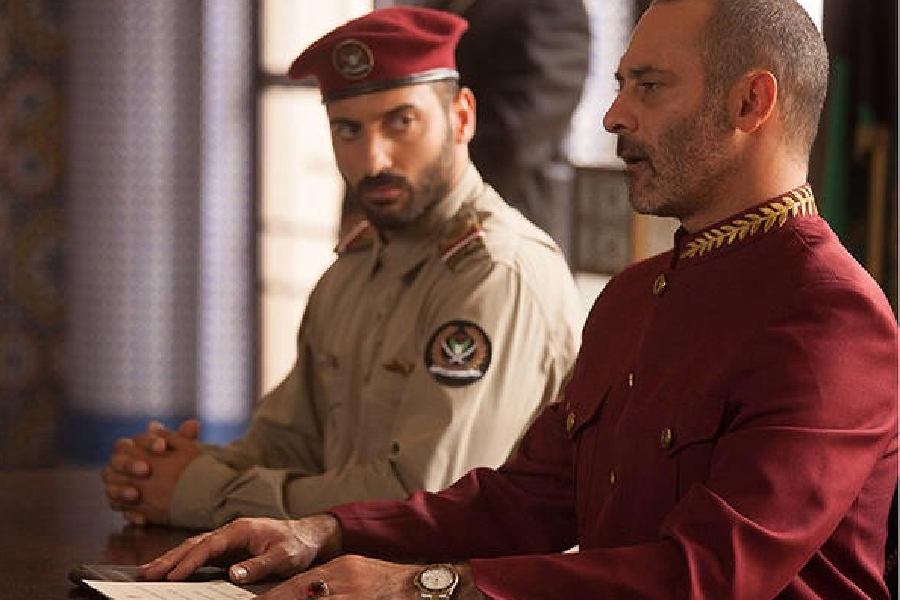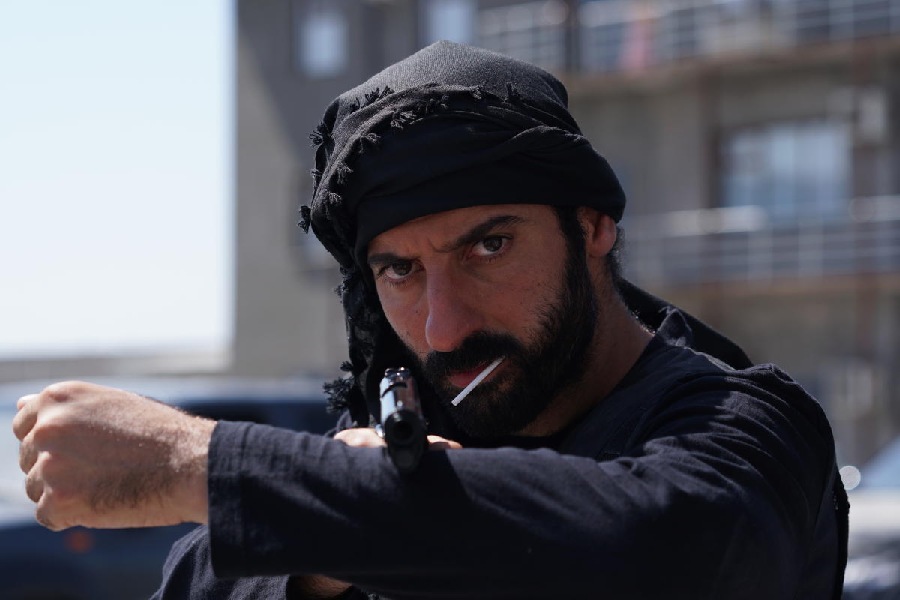Israeli actor Amir Boutrous — who has stellar television credits like Fauda and The Crown to his name — recently made his Bollywood debut with the thriller Akelli. Starring Nushrratt Bharuccha in the lead role, the film had Amir playing the antagonist. Over a Zoom call, t2 chatted with Amir about the Akelli experience, what Fauda did for him and what makes Israeli content so popular and relevant. And, of course, his love for Indian food!
What made you want to be a part of Akelli?
I always wanted to be part of a Bollywood film. I read the script of Akelli and I thought it was great. It had the kind of story that people don’t often talk about. A lot of these kinds of incidents have happened in Iraq with ISIS around and most of the victims are just reduced to a number. With Akelli, I thought it was quite a good opportunity to show what happened and be a part of what happened.
I said ‘yes’ pretty much straightaway... it wasn’t very hard to convince me because the script was good and for me, it was a new place and a new opportunity. I had never been to India or worked in a Bollywood film before.
And yet Akelli is not a quintessentially Bollywood song-and-dance film....
When I was younger, I was drawn to Bollywood song-and-dance films. But as I gained experience as an actor, I aspired to be part of an Indian production and work with an Indian crew, irrespective of what the film was. Pranay (Meshram), the director, is young but he is phenomenal. Nushhrratt (Bharuccha) is also an amazing actor.
Actually, it’s very interesting to see how work happens on an Indian set. It’s a little different from American or British or Israeli productions. But the main foundation and the compartments are the same. And the food on an Indian set is definitely better! (Laughs)

Amir (left) in The Crown
In what ways is an Indian film set different?
On an Indian set, everyone is very accessible. American and European productions have the same number of people as on an Indian production but they are so organised that they become almost inaccessible, if you know what I mean. It’s not about being better or worse, it’s more of a cultural thing. To give you a small example, while filming Akelli, I had my birthday and every single member on set picked up a piece of cake with their hand and fed me. On an American or British set, everyone will come with their forks, take a piece of cake and go away. As I said, this is more of a cultural difference than anything else.
What was the experience of playing the antagonist in Akelli?
When you play a terrorist, it’s almost always a straightforward, stereotypical portrayal. The bad guy always thinks that he’s not the bad guy. He believes that he’s doing the right thing. The challenge, for me, was to bring a little bit of colour to it than just be a bad guy who needs to do bad things. I tried and added a little bit of humanity to him, something that you wouldn’t expect. That, for me, was a challenge... to make sure that as much as he is a baddie, there is a lighter and humane side to him too. A script may be great, but on set, an actor needs to bring some additional colour to the lines and more layers.
Is that something that you try and do with every character that you play?
A good writer or director will always allow an actor a certain amount of freedom for his or her own interpretation. Everyone on set should take on the responsibility to make choices and bring changes that feel truthful to one’s character. Just before Akelli, I shot something for Paramount which is a very complex character... he’s a trash collector and I had to dig deep within to ensure that I brought in something that would work.
From Fauda to The Crown, you have done some big television. Which projects of yours have the maximum recall among audiences globally?
That would be Aladdin, Fauda and The Crown. Usually, The Crown (in which he played President Nasser) is the one most discussed. Fauda, of course, is such a huge show around the world and my character (Omar) was an important one and hence that also comes up a lot in conversations. I have a moustache there and I love it! A moustache is always great for a cool guy (laughs).
Are you aware that there is an Indian adaptation of Fauda?
Oh yes! In fact, I knew about it (Tanaav on Sony LIV) even before most of you guys did. We have a great team in Fauda — Lior (Raz) and Avi (Issacharoff, both creators of the show) and the director Omri Givon. We became very good friends. I know that Lior was in India not too long ago.
It was a very seamless process for me to become part of the Fauda family. Sometimes, it becomes tough to get into a show that’s already running. I got into Fauda in the fourth season and I was the new guy, irrespective of how big my part was. But then we just clicked and the experience became phenomenal.
I know Fauda is very big in India, but I haven’t seen the Indian version. I know it’s doing good. If you can get me a part in the fourth season of the adaptation, I will be very happy! But just make sure it’s in English or Arabic (Laughs)
What do you think makes Israeli content so compelling and globally relevant?
It’s a country that’s always conflict-ridden and very restless. People have to be creative, people have to adapt to situations easily. When you are in trouble, in whatever aspect of life, you always find creative ways to overcome it. In the middle of so much conflict and the realities that we have to face, the people of Israel need to be forward-thinking. That is reflected in the creative content that comes out of the country. When you see something that is completely different to your reality, then the audience naturally gets interested in that.
I know that the film Slumdog Millionaire is not reality, but that kid’s (Jamal, played by Dev Patel) journey is so compelling that people want to know what happened to him. Forget about him winning the game show, people were more invested in his trajectory as an individual. And yes, Israel is full of surprises (smiles).
Are you going to be looking to do more work in India?
I am very interested. I am attracted to all things Indian, and as I said, that includes your cuisine. It’s my favourite but after my mum’s cooking (laughs). I would love to work more in India but these are things that one never knows. It needs to happen organically. If the opportunity comes, I will embrace it with both arms. But that only time will tell.
To sign off, what’s your favourite Indian dish?
Butter chicken, tikka masala and lamb vindaloo are at the top of my head. I love it!










